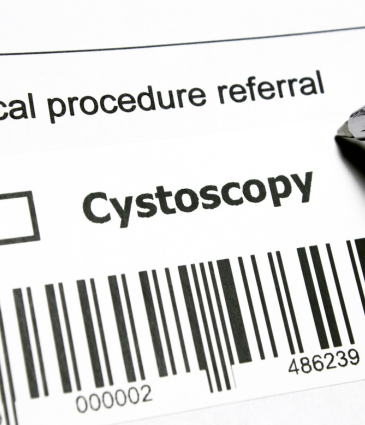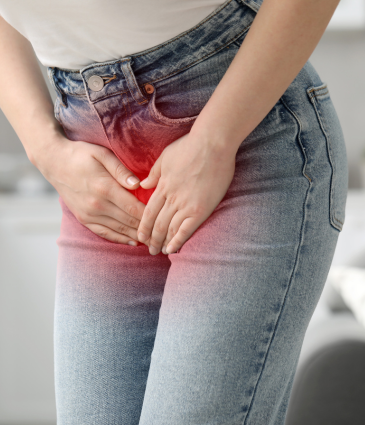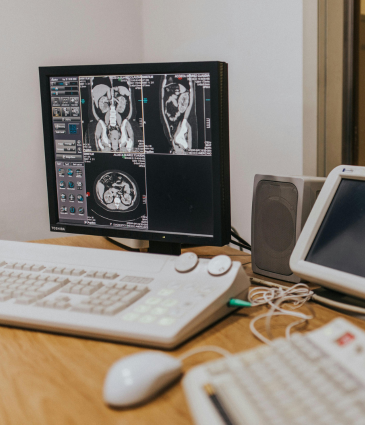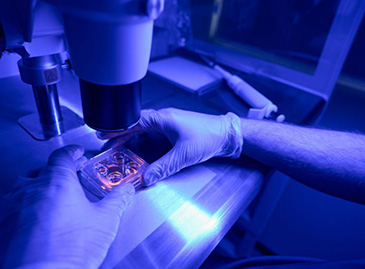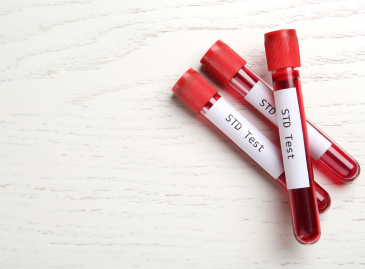
Cystoscopy vs Ureteroscopy: Procedures, Purposes, Recovery
Ureteroscopy and cystoscopy are some of the most routine procedures that doctors (urologists) often perform today. They often use these procedures to have a more detailed look at a person’s urinary tract. Various complications can occur in the urinary tract. The difficulties can be challenging. But, advancement in technology usage in examining and diagnosing health conditions is significant progress. Researchers indicate that ureteroscopy and cystoscopy have proven to be a huge success.
Definition of terms
Cystoscopy is a diagnostic procedure that involves using a cystoscope to have a more detailed look at the urethra and the bladder wall for any urinary tract problem. A cystoscope is a hollow tube instrument with a lens and an eyepiece on the outer end. Your doctor will slowly insert this hollow tube into your bladder for the diagnostic process.
Ureteroscopy is also a diagnostic procedure that your doctor uses to look at the inside of the kidney and ureter. Just like in cystoscopy, your doctor uses a ureteroscope for this procedure. A ureteroscope is another hollow tub of an instrument with a lens and an eyepiece on the outer edge. Although, it is longer and thinner than a cystoscope.
Why your doctor may perform cystoscopy
The purpose of performing a cystoscopy varies. Your urologists may perform this diagnostic procedure to find the cause of a urinary problem. Sometimes, they can use this procedure to make an informed decision about treatment methods for the problem. The most familiar urinary issues include:
- Retention of the urine
- Unexplainable pain during and after urination
- Traces of abnormal cells in urine
- A consistent difficulty in starting or completing urination
- Urinary tract infections
- Traces of blood in the urine
What will your urologist see during cystoscopy?
Cystoscopy aims to view your bladder wall and the urethra. However, your urologists may have a view for the following;
- They may look for the presence of solid materials such as stones in your bladder. The stones may result from a high concentration of minerals in your urine.
- The presence of tumors and abnormal tissue in your urethra or bladder
- A possible sign of enlargement in your prostate or tissue scar in your urethra
- Some congenital abnormalities
Cystoscopy for treatment purposes
Furthermore, your urologist may perform cystoscopy for treatment purposes. Urinary problems such as bleeding in the bladder and urethra blockage can be treated. However, a few other urinary problems can be treated with a cystoscope. They include;
- The removal of solid pieces (stone) from the urethra or the bladder.
- Treatment of abnormal tissues and tumors in the urinary tract
- Collection of samples for biopsy in case of suspected cancerous cell
- In case of urinary leakage, your doctor may use a cystoscopy procedure to inject medicine into your bladder
- Injecting some medications into the wall of the urethra to treat urinary leakage.
Why your doctor may perform a ureteroscopy?
Your doctor may perform a ureteroscopy to look for the cause of blockage of urine in the ureter. Sometimes, they can use the procedure to investigate other possible problems in the kidney or ureter. However, during ureteroscopy, your doctor may want to have a more precise look at your ureter and kidney for the following;
- Possible stone in your kidney or the ureter
- Tumors in the lining of your kidney or possible abnormal tissue
Ureteroscopy for treatment purposes
Furthermore, we will have a brief about the potential treatment purpose of ureteroscopy. Although, they often use this procedure to treat blockage of urine in the ureter. However, it can also serve as a treatment option for the following;
- Removal of solid pieces (stones) from the ureter and the kidney
- Treatment of abnormal tissues in the kidney and ureter
- Collection of samples from the kidney and ureter for the biopsy procedure.
Preparation for cystoscopy or ureteroscopy
Preparing for any of these procedures is not a complex task. Your doctor will guide you in the process of preparing for these procedures. Often, your doctor will ask you about your health history. The reason for the record is to determine if you will be the right candidate for these procedures. Your doctor may ask you to provide a urine sample for a Urinary tract infection test.
Furthermore, if your urine test is positive for a urinary infection, your doctor may give you antibiotics before any procedures. Information about the medications you are using may be needed as well. You will have to inform your urologist if you have any allergies. Have a discussion with your doctor on what to expect before and after the procedures.
Lastly, you may not require special preparation. But, in some cases, your doctor may ask you to stop blood thinner medicines such as aspirin. You might have to reduce your intake of liquids too. Your urologist will inform you when to empty your bladder before the procedures.
Procedures
Cystoscopy or ureteroscopy may be carried out in a hospital or outpatient center. These procedures are usually carried out under anesthesia. These procedures often take about thirty to forty-five minutes in the operating room. However, the procedure might take a few more minutes if your urologist performs a treatment method. It could be that they want to remove a stone from the bladder or ureters.
In addition, your urologist will often inject you with sedatives to numb you. However, sedation will not bring any harm. But, it is to aid comfort and relaxation during the procedure. Your healthcare team will pay close attention to your vital signs and begin the insertion of the cystoscope or ureteroscope.
They will fill your bladder with a sterile liquid (saline). Having a clearer view is the priority; your bladder will be filled with saline. The urge to urinate may set in once your bladder is full. But your urologist may reduce the volume of saline to avoid this. The hollow tube will be used to view the lining of the urethra and bladder. For ureteroscopy, the lining of the kidney (renal pelvis) and ureters will be checked for a possible problem.
Expectations after cystoscopy and ureteroscopy
After completing these procedures, you may leave for your house the same day. Although, this depends on the type of anesthesia used for the procedure. In rare cases, you may need to stay overnight at the operating facility for close monitoring by the health team. Furthermore, once you are cleared to leave the facility, your doctor may ask you to try to urinate to remove the doubt about urination.
In addition, depending on the procedure carried out, you may experience slight discomfort. But this will leave after 24 hours of the procedure. If you still notice any pain, inform your doctor for clarification and examination. Your doctor may ask you to drink two 8-ounces of water after the procedure. They may prescribe some antibiotics to prevent the risk of infection after the procedure.
Possible risk of these procedures
Like all other medical procedures, cystoscopy and ureteroscopy come with some risks. However, they may be mild and deserves close monitoring by your doctor. A few of the commonest risks are;
- Exposure to Urinary tract infection
- Light pain while urinating
- Possible injury to the bladder, urethra, and ureters.
- Pain in the lower abdomen
- Chills
Farewell
These procedures have proven to be a great success so far. Meet with your doctor when you notice any strange change in your urinary functions. If you notice severe discomfort and fever, do not hesitate to inform your doctor of this development. You may have to drink water as often as possible after the procedure. Remember to avoid strenuous activities such as rigorous exercise and driving during your recovery phase. Rest can never be overemphasized, and you need it.
How long is the recovery phase?
Often, patients may take about one week to ten days to recover. Although complications after the procedure may extend the time frame for recovery.
Are cystoscopy and ureteroscopy major surgery?
It is a typical outpatient procedure. You go home the same day you undergo these procedures. It is not a major surgery.
Scoliosis Price Turkey